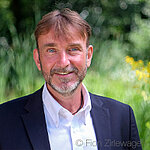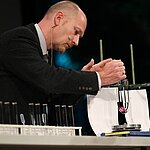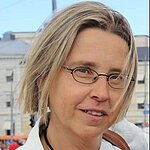Faculty III
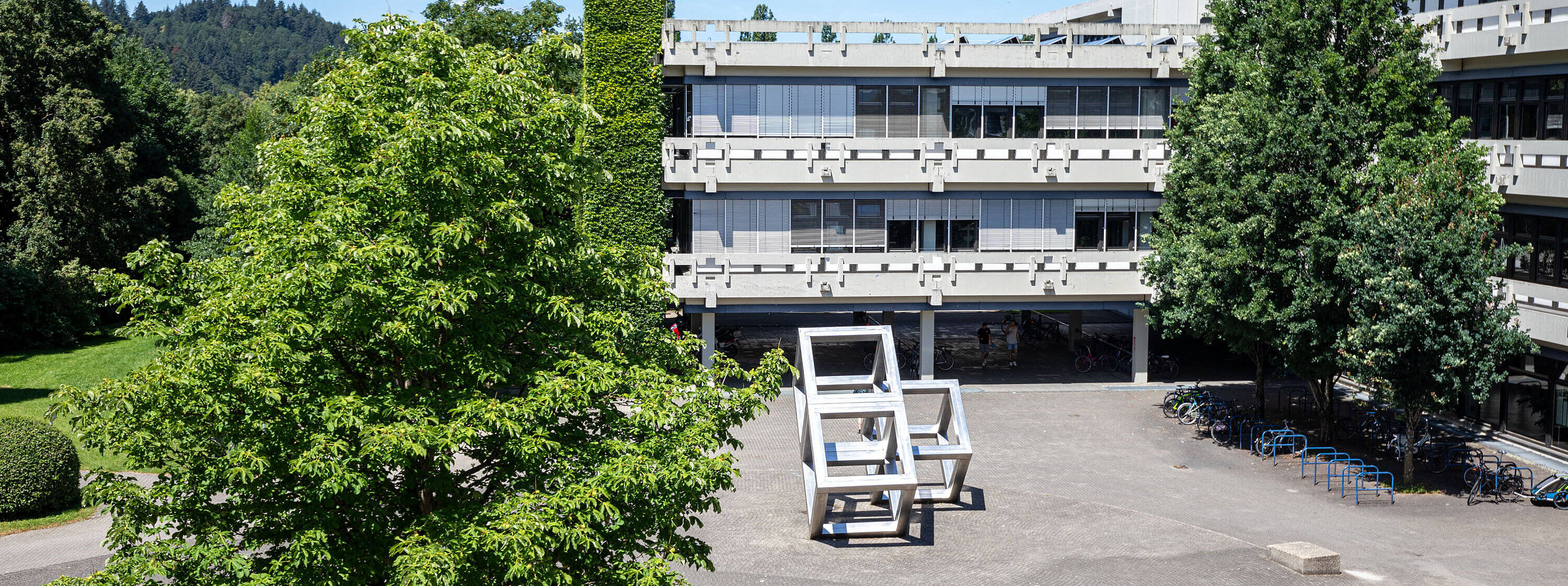
Faculty of Mathematics, Natural Sciences and Technology
The Faculty of Mathematics, Natural Sciences and Technology is renowned for its excellent international-level teaching and research. Our success is built on the hard work of our dedicated colleagues. Creativity, quality and interdisciplinary cooperation characterise our joint approach, which is realised in excellent research and innovative teaching.
Through our six departments, the faculty is represented in almost all degree programmes at the University of Education Freiburg. Our teaching focuses on training prospective teachers for all school levels and types. Our departments design the subject-specific and subject-didactic programmes of study in STEM subjects (biology, chemistry, mathematics, physics, technology and geosciences), as well as for vocational education, engineering, business education, everyday culture, sports and health, and geography. We also participate in the bachelor's and master's degree programmes in Health Education and in the bachelor's degree programme in Early Childhood Education. We are particularly committed to providing our students with a broad-based education that combines a strong focus on research and professionalism.
The faculty offers a wide range of research projects. These include empirical educational research, didactic development research and subject-specific research. The main objectives are the theory- and evidence-based development of teaching, the scientifically sound design of educational processes and the professionalisation of teachers in all three phases of teacher training (studies, teaching practice, professional activity). The areas of public health, health education and research methods in health sciences expand the faculty's research spectrum. These areas focus on establishing nationally and internationally oriented health science and health education research. The faculty also offers the university certificate 'Research Methods in Empirical Education and Social Sciences'.
Many of the projects based in the faculty are interdisciplinary in nature and closely linked to the other two faculties. There is also extensive networking with other universities at regional, national and international levels. Of particular note is the intensive support provided to researchers in the early stage of their careers through interdisciplinary doctoral programmes that cover a wide range of topics.
Furthermore, all departments within the faculty are particularly committed to promoting education and research in the areas of education for sustainable development (BNE) and digital teaching and learning.
Contact Information
KG 2, Raum 205
Dean's Office of Faculty III
University of Education Freiburg
Kunzenweg 21
79117 Freiburg
Dean's Office Administration
Claudia Ritter
Phone: +49 761 682-367
Email: claudia.ritter(at)ph-freiburg.de
Dean's Office
Dean
Vice Dean
Dean of Studies
Faculty Assistant
Administration
Degree Programmes
Almost all degree programmes at the University of Education Freiburg feature subjects from the Faculty of Education.
Teacher Training Degree Programmes
- Primary Level (BA and MA)
- Bilingual Education at Primary Level (BA and MA)
- Secondary Level 1 (BA and MA)
- Bilingual Education at Secondary Level 1 (BA and MA)
- Secondary Level 2 (BA and MA; in cooperation with the University of Freiburg)
- Higher Teaching at Vocational Schools (BA and MA; in cooperation with Offenburg University of Applied Sciences)
- Electrical Engineering/Information Technology
- Mechatronics
- Media Technology/Business
- Computer Science/Business
- Higher Teaching at Vocational Schools – Nursing/Business and Social Services Management (MA)
Other Degree Programmes
- Health Education (BA and MA)
- Vocational Education – Nursing/Business and Social Services Management (MA)
- Vocational Education – Textile Technology and Clothing/Business(MA)
- Early Childhood Education (BA)
Professors
- Prof. Dr. Gregor C. Falk (Dean)
- Honorary Prof. Dr. Jens Clausen
- Prof. Dr. Anne-Marie Grundmeier
- Prof. Dr. Marco Oetken
- Prof. Dr. Frank Reinhold
- Junior Prof. Dr. Anne-Christin Roth
- Prof. Dr. Verena Schreiber
- Prof. Dr. Eva-Maria Bitzer
- Junior Prof. Dr. Nadine Tramowsky
- Prof. Dr. Gerald Wittmann
Non-voting Members - Prof. Dr. Jens Friedrich (Vice Dean)
- Prof. Dr. Silke Mikelskis-Seifert (Dean of Studies)
Academic Staff
- Dr. Dietmar Glaubitz
- Dr. Dinah Reuter
Substitute Member - Sonja Huber
Doctoral Student
- N.N. until the new election
Technical Staff
- Bernd Mößner
Students
- Felizitas Espinoza
- Leon Kiesewetter
- Darius Notnagel
- Prof. Dr. Silke Mikelskis-Seifert, Dean of Studies
- Prof. Dr. Ute Bender
- Prof. Dr. Jens Friedrich, Vice Dean
- Dinah Reuter
- Prof. Dr. Gerald Wittmann
- Dr. Dietmar Glaubitz
- Felicitas Espinoza
- Leon Kiesewetter
- Darius Nothnagel
Doctoral Student: N.N. until the new election
Departments

Department of Vocational and Business Education
The department is dedicated to the preparation of vocational education professionals who will work in vocational schools and corporate training contexts. Through a wide range of activities, the institute promotes high-quality education and training, and equips future professionals to meet the challenges of a rapidly changing world of work.

Department of Biology and its Didactics
The department makes an important contribution to training teachers who possess both sound subject knowledge and teaching skills. Its aim is to enable pupils to learn about biology in a sound and inspiring way and to raise their awareness of ecological and biological issues.
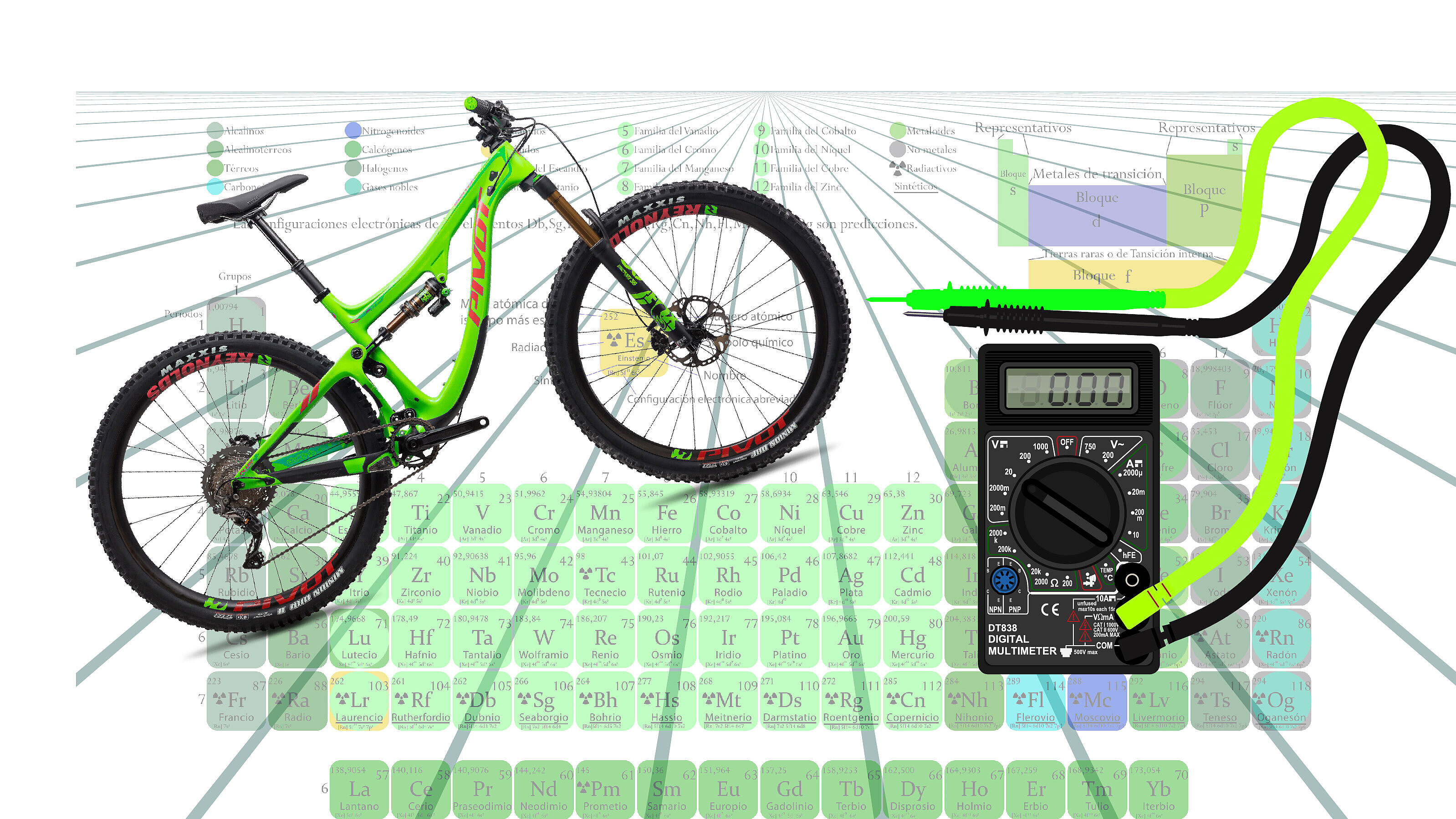
Department of Chemistry, Physics, Technology and their Didactics
The department plays a decisive role in training teachers who can convey a fascination for chemistry, physics and technology with enthusiasm and expertise, and prepare pupils for the challenges of a science- and technology-oriented world.
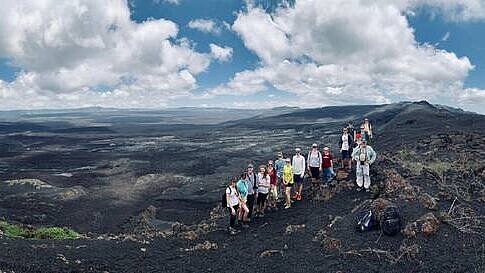
Department of Geography and Geography Education
Geography is an inspiring and future-oriented subject. Studying geography gives you the opportunity to engage intensively with issues such as climate change, inequality and globalisation. Through an integrative approach combining natural and social sciences, we promote an understanding of complex interrelationships and encourage active participation in finding solutions to socially relevant issues. Our teaching and learning environments prepare you to become dedicated teachers who inspire students to take an interest in geographical topics, offering them positive perspectives for them in challenging times.

